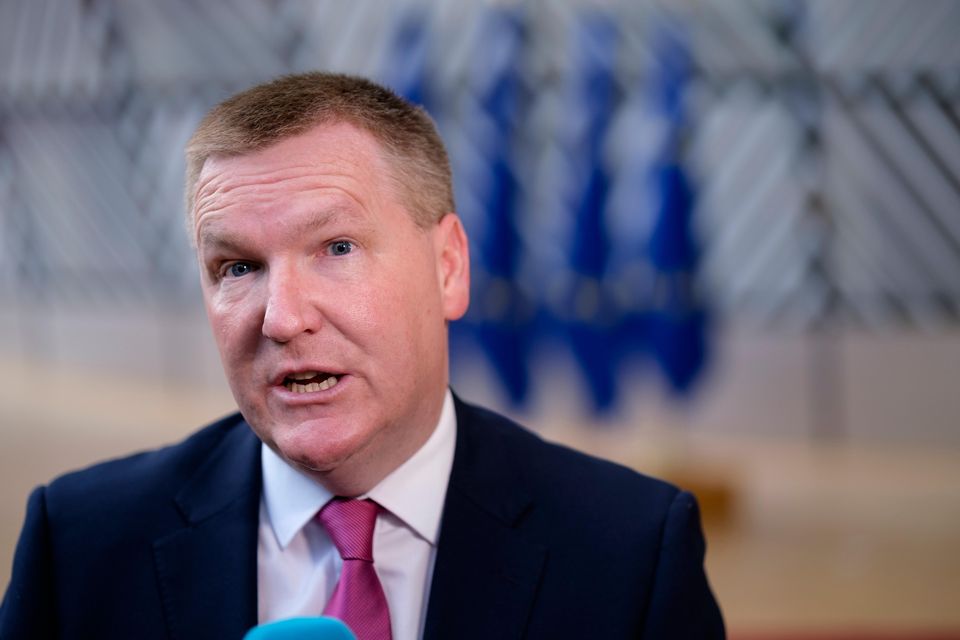Central banks will struggle to hold hard line as the economy slows

Interest rate cuts are on the cards sooner than anyone thought, but don’t expect a return to the super-low rates of old.
Finance Minister Michael McGrath said yesterday he expects a reduction in the European Central Bank’s main borrowing rate – which has been at a euro era high of 4.5pc since September – as early as the first half of next year.
His comments came as flash inflation estimates showed price rises slowing by more than expected in Germany, the bloc’s largest economy. German inflation came in at 2.3pc in November, the same as in Ireland, while inflation also slowed in Spain, feeding expectations of a lower eurozone figure ahead of its publication today.
Lower inflation and a third quarter economic contraction in the eurozone should allow the ECB to keep interest rates where they are when they meet in mid-December, after central bankers hit the pause button for the first time in over a year at their most recent meeting in October.
“Overall, inflation looks to be benign in the eurozone,” said ING’s senior eurozone economist Bert Colijn.
“For the ECB, this confirms the view that next year could bring about a first rate cut. With inflation trending down better than expected, this could happen earlier than expected.”
But ECB president Christine Lagarde told MEPs this week that inflation is still too high and that rates need to stay higher for longer, while other central bankers – including Ireland’s Gabriel Makhlouf – are saying a rate hike is not out of the question in the near future.
The eurozone is now closer than ever to meeting the ECB’s 2pc inflation target, following years of low rates and close to zero inflation.
No inflation might sound good to consumers, but it can be an indicator of a stagnant economy, as it means consumers are not spending and wages are stagnating.
Higher interest rates across the world have stung the global and Irish economies.
Two international institutions – the OECD and European Commission – are now predicting a recession in the country this year, at least in the multinational parts of the economy, which tend to skew the data. Domestic sectors are expected to keep growing, although the recession could affect tax revenues, the OECD pointed out.
On the other hand, the OECD said lower interest rates could improve Irish growth, especially if the US economy keeps surprising on the upside, as it did in the third quarter.
But a tight labour market in Ireland means rising wages could drive inflation back up again.
Central Statistics Office data out this week showed average earnings grew by 4.6pc in the third quarter, compared with the same time last year, thanks to higher hourly pay rather than more hours worked.
While that is still lower than inflation, public sector wages grew faster, at 7.8pc. In the private sector, services, hospitality, health and IT saw inflation-busting increases.
“Outside of one quarter during the pandemic, this is the fastest annual rate of growth in the data going back to 2008,” said Goodbody chief economist Dermot O’Leary.
Source: Sarah Collins, Irish Independent 30/11/2023

